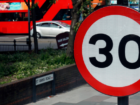Moving house, anyone who has done it will confirm that it’s one of the most stressful things you can do in life.
Simultaneously it’s expensive, exhausting and exciting – that’s a potent combination for our brains to deal with, meaning inevitably things get forgotten about, usually related to our cars and driving.
Not only do you need to update your driving licence address, there are other details to amend, including the vehicle’s own documentation.
Here’s a summary of everything motoring-related that you will need to change your address on when you move house:
- Your driving licence
- Your motor insurance
- Your vehicle’s logbook (V5C)
- Any add-on products
How to update your driving licence
Not only is this free of charge, the DVLA gives you a choice of methods for updating the address on your driving licence.
It’s important to update your driving licence, not least because it could cost you £1,000 in fines if you are asked to produce your driving licence by police and it shows where you previously lived.
You can change the address on your driving licence online or by post with the DVLA.
Online, you need a Government Gateway ID to apply and it takes about 15 minutes to get through the process, at the end of which, you need to cut your existing driving licence in two and return it to the DVLA in Swansea.
Alternatively, you can do it all by post. You need to complete form D741 and send it to the DVLA along with your driving licence. The form itself is part of your driving licence, but a replacement can be obtained online.
Did you know? It’s illegal to hold two driving licences in the UK.
Updating vehicle insurance details
Informing your insurer of a change of address is very important because if you don’t and you need to make a claim, your insurer could use it as justification to refuse to pay out.
Insurers use lots of different factors to calculate the cost of your car insurance and your address is one of the most important in the process. That’s why it’s vital to inform your insurer as soon as possible, so that you do not run the risk of being uninsured.
Unfortunately, there are frequently costs involved in doing this. Insurers typically charge an administration fee to change details on your policy.
There’s no upper limit on what that fee could be, but they are often around £25. Your insurer always sets them out in their terms and conditions, so always check the small print before buying insurance.
If you’re baulking at the thought of spending £25 for someone to change your address on a spreadsheet, consider the alternatives. An insurer can refuse to pay out on an insurance claim if your details are incorrect, meaning you could be forced to foot the bill of whatever it is you are making a claim for. Driving without valid insurance could result in fines and points on your licence.
Your insurer will calculate your insurance cost based on your new address and alter your premium based on the new risk. This may mean that an additional premium or refund may be due. If you refuse to pay this new premium, your insurer can cancel your policy.
Informing the Driver and Vehicle Licensing Agency (DVLA)
The DVLA is the Government branch that is responsible for maintaining the database of drivers and vehicles in the UK. Even though you will have contacted the DVLA to change your licence, you need to do the same for any vehicles you are the registered keeper of.
To change the vehicle registration, you need the form V5C – sometimes referred to as the logbook.
Not only will this update the keeper’s address details for the vehicle, it also allows the DVLA to send documentation such as Vehicle Excise Duty (VED) – or road tax – renewals, as well as any speeding fines you may incur.
All you need to do is complete section 6 on the V5C, sign and date the declaration in section 8 and then send the whole form to the DVLA.
If you’ve lost your V5C, it will cost you £25 to get a replacement and you will also need to complete a V62 to tell the DVLA your address has changed.
Informing any add-on product providers
Lots of UK motorists take out things like Breakdown Cover to protect them against unintentional mishaps when out and about on the road.
If you have any extra services, like Breakdown Cover, not provided by your insurer, then you need to tell them of your change of address.
There you have it, an outline of the details you need to update when you change address and move house.







